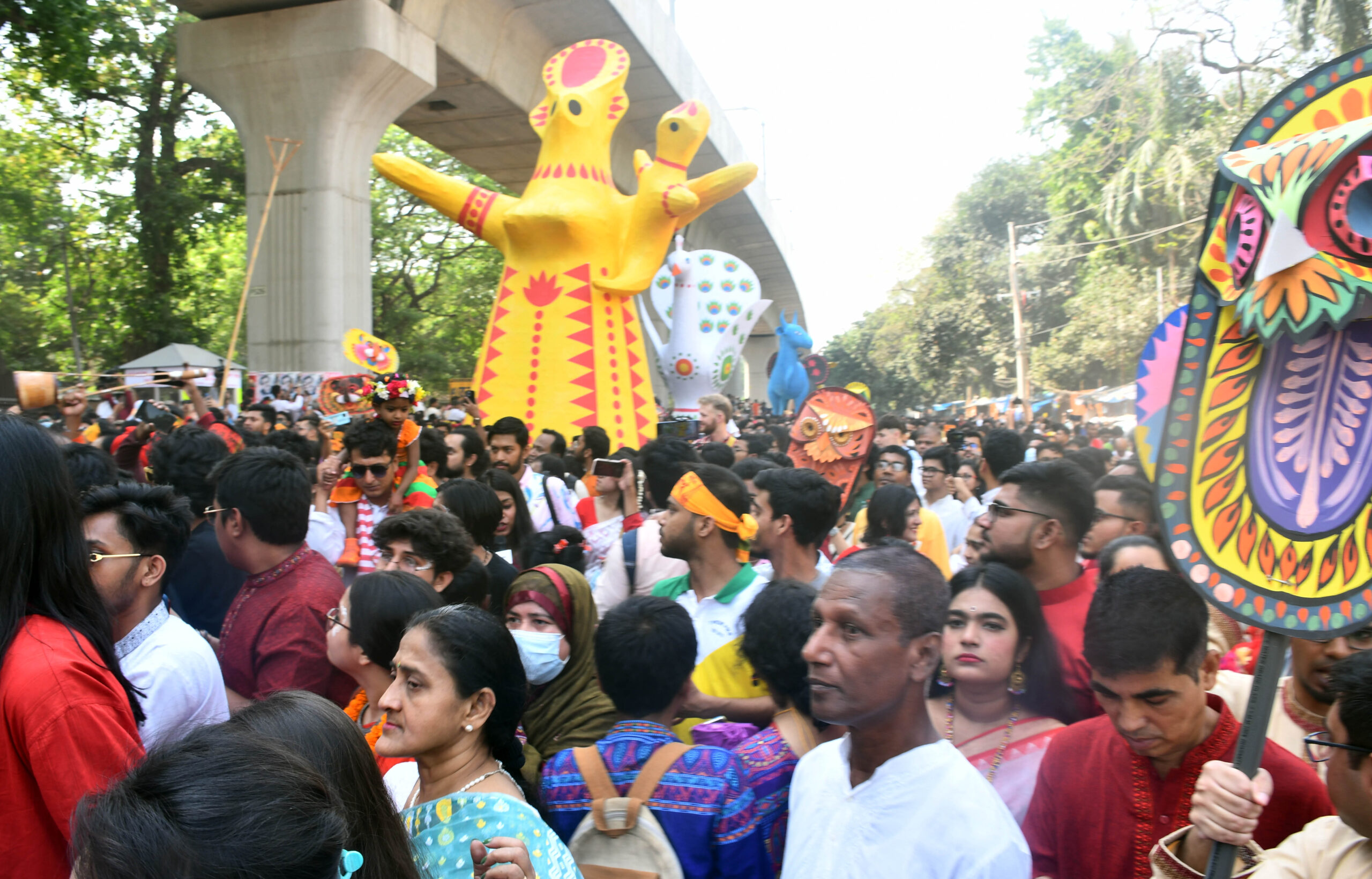POBNEWS24, Dhaka, Apr 14, 2023 : The Bangladesh is celebrating Pahela Baishakh, the first day of Bengali New Year-1430, on Friday upholding the rich cultural values and rituals of the Bangalees.
Chhayanaut began ‘The Bangla Nabobarsho festival’ welcoming the New Year at its traditional venue Ramna Batamul in the capital playing raag Ahir Bhairav on Sarangi as soon as the sun rose. After playing the raag for eight-minute, the programme of different songs started here.
This year the songs were chosen based on the themes of nature bathed in the morning’s first light, love for humanity, patriotism, self-realisation and awakening. Artistes performed solo music and recited poems in between group performances.
Bangladesh Television and Bangladesh Betar telecast the programme live. The programme was also shown live on the YouTube channel of Chhayanaut.
Chhayanaut, an institution devoted to Bengali culture, founded in Bangladesh in 1961, organised the first ever programme welcoming the Bengali New Year in the capital in 1967. Since then Chhayanaut’s programme has become a part and parcel of Pahela Baishakh, the first day of the Bengali New Year.
The programme could not be organised in 1971 due to the Liberation War. The continuity of the programme was not stopped even after the militants carried out a bomb attack at the programme in 2001. The programme, however, could not be organised in 2020 and 2021 due to coronavirus pandemic.
BSS adds: This year, the first day of the Bangla calendar, is being celebrated following its all rituals at the venue along with bringing out the traditional ‘Mangal Shobhajatra’ (procession) organised by the Fine Arts Faculty of Dhaka University.
But, due to the ongoing holy month of Ramadan, it will be celebrated on a limited scale.
People are expected to join the “Nabo Barsho” festivities across the country, particularly in the capital city.
Pahela Baishakh is one of the most colourful festivals through which the Bangalees bid farewell to the old year and welcome the New Year.
On this occasion, people from all walks of life wear traditional Bengali dresses.
Women wear white sarees with red borders and adorn themselves with bangles, flowers, and tips, while men wear white pyjamas and panjabi or kurta.
The government has drawn up an elaborate programme. The Mongol Shobhajatra will be brought out at divisional, district and upazila levels to reach the traditional programme to the grassroots as it has earned the international recognition.
However, business communities, especially in the rural areas, are ready to open their traditional ‘Halkhata’, new account books. On the day traders also offer sweets to customers.
President Abdul Hamid and Prime Minister Sheikh Hasina have issued separate messages greeting the countrymen on the eve of the Pahela Baishakh.
All secondary schools and colleges of the country are asked to celebrate Pahela Baishakh, the first day of the Bangla calendar.
“The educational institutions across the country must organise student rallies in the morning as part of celebration of Pahela Baishakh,” said the Directorate of Secondary and Higher Education (DSHE) on Wednesday.
DSHE director professor Shahedul Kabir said that DSHE sent an order to all schools and colleges on Tuesday regarding Pahela Baishakh celebration following a directive of the Ministry of Education.
DSHE directed that the students must sing the national anthem, as well as “Esho He Baishakh,” a popular song by Rabindranath Tagore, to welcome the Bangla New Year on that day as part of the celebrations.







